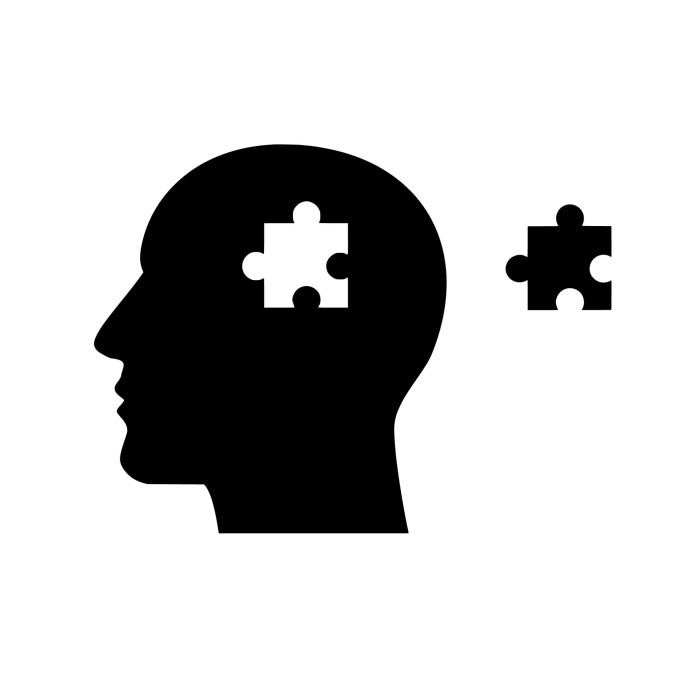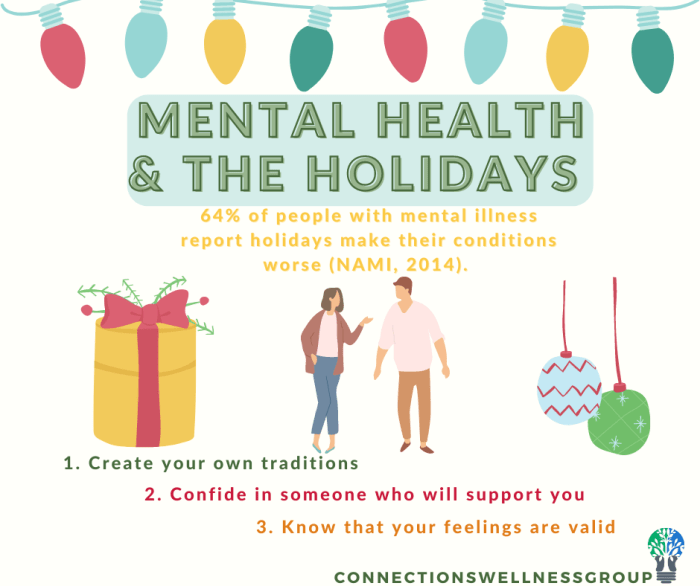
Mental-health travel is an emerging concept that highlights the profound impact of exploring new horizons on our mental well-being. From rejuvenating escapes to transformative journeys, travel has been shown to enhance mood and reduce stress, making it a powerful tool for mental health. Studies indicate that immersing ourselves in different cultures and environments can serve as a unique form of therapy, offering both relaxation and self-discovery.
This guide delves into the essential aspects of planning a mental-health travel experience, including destination selection, necessary preparations, and the right travel accessories to ensure comfort and support. Whether traveling solo or with companions, the right approach can transform any trip into a rejuvenating journey for the mind and spirit.
Understanding Mental Health in Travel
Travel is not just about visiting new places; it significantly impacts mental well-being. Mental health awareness while traveling is crucial as it helps individuals recognize the importance of self-care and personal growth during their journeys. Engaging with different cultures and environments can provide a fresh perspective, ultimately fostering a healthier state of mind.Numerous studies indicate that travel can serve as a form of therapy, promoting mental well-being.
For instance, a study published in the Journal of Travel Research revealed that 86% of travelers felt more relaxed after a vacation. This emphasizes the therapeutic effects of stepping away from daily routines. Travel encourages a break from stressors, allowing individuals to recharge mentally and emotionally.
Benefits of Travel for Mental Well-Being
Traveling offers a plethora of mental health benefits, including:
- Reduction in stress and anxiety levels.
- Increased creativity and problem-solving abilities.
- Enhanced mood and overall life satisfaction.
- Building resilience through new experiences and challenges.
- Opportunities for social connections that can combat loneliness.
Engaging with new environments and perspectives can act as a catalyst for self-discovery, allowing for deeper reflection on personal issues. Overall, travel serves as a powerful tool for mental health improvement and personal development.
Planning a Mental Health Travel Experience
Planning a trip with mental health in mind requires thoughtful preparation. It’s essential to create an environment conducive to relaxation and well-being. By focusing on mental health, travelers can ensure that their experiences remain enriching and fulfilling.A comprehensive checklist can guide preparations for a mentally healthy travel experience:
- Research destinations known for their tranquil environments.
- Plan a flexible itinerary to avoid burnout.
- Include mindfulness activities such as meditation or yoga.
- Ensure accommodation options that prioritize comfort.
- Pack items that promote relaxation, such as books and journals.
Choosing Destinations that Promote Mental Wellness
Selecting the right destination can significantly impact mental health during travel. Ideal locations for mental wellness often feature:
- Natural landscapes that provide peace and tranquility.
- Cultural experiences that encourage personal growth and learning.
- Spas and wellness retreats focusing on relaxation and rejuvenation.
- Areas with low noise and pollution levels for a calming environment.
In addition to choosing destinations, packing essential items tailored for mental health comfort can enhance the experience. This may include travel pillows, calming scents, and relaxation tools to help maintain peace throughout the journey.
Choosing the Right Travel Accessories

For families traveling with infants, selecting appropriate travel accessories is vital for a smooth journey. The right gear can alleviate stress and ensure comfort for both parents and children.When choosing a travel bassinet, look for features such as:
- Lightweight and portable design for easy transport.
- Safety certifications to ensure child security.
- Easy setup and takedown for hassle-free use.
- Comfortable padding for the infant’s well-being.
Travel Checklist for Families
A well-organized travel checklist can simplify preparations for families:
- Travel booster seats for safety during transportation.
- Travel cribs that ensure a good sleep environment for infants.
- Portable playpens to provide safe play areas.
- Essential items like wipes, snacks, and toys for convenience.
Additionally, for women prioritizing mental health while on the go, a travel backpack designed with organizational features can make a significant difference. Look for backpacks with compartments for personal items, comfortable straps, and lightweight materials to ease the burden during travel.
Traveling with Companions
Traveling with the right companions can enhance the overall experience and provide emotional support. A good travel buddy can help create a positive atmosphere, making the journey enjoyable and enriching.Choosing a travel buddy who supports mental health involves considering shared interests and communication styles. Engaging in activities that encourage social interactions, such as group excursions or workshops, can strengthen bonds and create memorable experiences.
Emotional Benefits of Traveling with Friends
Traveling with friends can offer emotional benefits, including:
- Reduced feelings of loneliness and isolation.
- Shared experiences that enhance joy and laughter.
- Support during challenging situations, fostering resilience.
- Opportunities for deeper connections through shared adventures.
Traveling alone also has its unique benefits, such as increased independence and self-discovery. Ultimately, the choice between companions or solo travel should align with personal preferences and mental health needs.
Exploring Travel Literature
Travel literature can be a source of inspiration and reflection, helping individuals connect with their emotions and thoughts. Reading travel books can enhance the overall travel experience by providing context and insights into destinations.Books that inspire mental health and self-discovery often include narratives that explore personal growth through travel experiences. Some notable titles include:
- “Eat, Pray, Love” by Elizabeth Gilbert
- “Wild” by Cheryl Strayed
- “A Walk in the Woods” by Bill Bryson
Incorporating Travel Literature into Trip Planning
Reading can be a therapeutic activity that enriches the travel experience by prompting self-reflection. Incorporating travel literature into trip planning can be done by:
- Creating a reading list based on the destination.
- Bringing along books that resonate with personal goals.
- Engaging in discussions about the literature with travel companions.
Ultimately, reading travel literature can inspire individuals to explore new perspectives and deepen their understanding of themselves during their journeys.
Modes of Travel and Their Impact on Mental Health
The mode of travel chosen can significantly affect mental health during a trip. Different forms of transportation have various impacts on stress levels and overall travel experiences.Traveling by train can offer a more relaxed atmosphere compared to flying, allowing passengers the chance to enjoy scenic views and stretch their legs. Conversely, flying is often associated with heightened stress due to airport procedures and time constraints.
Maintaining Calmness and Focus While Traveling
Regardless of the mode of transport, maintaining calmness can enhance the travel experience. Some practical tips include:
- Practicing mindfulness techniques such as deep breathing.
- Listening to calming music or podcasts during transit.
- Setting realistic expectations for travel time and connections.
- Staying hydrated and nourished to combat fatigue.
By being intentional about the travel experience, individuals can better manage stress and enjoy the journey, no matter the mode of transportation.
Crafting a Personal Travel Bucket List

Creating a personal travel bucket list not only sets exciting goals but also promotes mental well-being through anticipation and planning. Travel goals can help individuals focus on what they truly desire and inspire them to seek new experiences.A template for a mental health travel bucket list might include:
- Destinations that inspire positive emotions.
- Experiences that promote self-growth and reflection.
- Activities aimed at relaxation and rejuvenation.
- Travel goals that align with personal interests and passions.
Psychological Benefits of Setting Travel Goals
Travel goals can provide significant psychological benefits, such as:
- Increased motivation and excitement leading up to the trip.
- A sense of accomplishment upon completing travel experiences.
- Opportunities for personal growth through diverse interactions.
- A deeper understanding of personal preferences and desires.
These benefits contribute to an enhanced sense of self and overall mental well-being as individuals embrace their travel aspirations.
Practical Considerations for Travel
Practical considerations play a critical role in ensuring a stress-free travel experience. Keeping travel documents organized is essential to avoid unnecessary anxiety during trips. This includes passports, visas, and tickets, which should be easily accessible.A comparison of travel credit cards that offer mental health-related perks can also be beneficial, as these cards might provide rewards for wellness-related expenses, such as spas or retreats.
Selecting Comfortable Travel Clothes
Choosing the right travel clothes is vital for mental well-being during journeys. Consideration should be given to:
- Breathable fabrics that promote comfort.
- Layering options for varying climates and temperatures.
- Versatile pieces that can be mixed and matched easily.
- Comfortable footwear to support long walks and exploration.
Ensuring that travel attire is comfortable and practical will contribute to a more enjoyable travel experience, minimizing distractions and allowing for greater focus on personal well-being.
Tips for Families Traveling with Children
Traveling with children requires careful planning to ensure their mental health and enjoyment during trips. Essential travel items include travel bottles, snacks, and activities that engage children positively throughout the journey.To maintain children’s mental health while traveling, it’s important to:
- Incorporate breaks during travel to prevent overstimulation.
- Encourage participation in planning to make them feel involved.
- Set aside time for relaxation and downtime during the trip.
- Use creative activities to keep them engaged and entertained.
Engaging Children Positively During Travel
Engaging children positively can enhance their travel experience. Strategies may include:
- Creating a travel journal for them to document their experiences.
- Involving them in fun educational activities related to the destination.
- Setting fun challenges, like a scavenger hunt, during sightseeing.
These strategies help create meaningful memories and promote children’s mental well-being as they explore new places.
Engaging with Travel Media
Travel media plays a significant role in promoting mental wellness and awareness. Engaging with travel channels and their programming can inspire individuals to explore new destinations while focusing on mental health.Travel shows often highlight the benefits of travel for mental well-being, showcasing personal stories of transformation and growth through travel experiences. These narratives can serve as powerful motivators for viewers.
Travel Documentaries Focused on Mental Health Themes
Several travel documentaries focus on themes related to mental health and wellness. Some notable examples include:
- “The Dawn Wall”
-A story of personal challenge and perseverance. - “Free Solo”
-Highlighting the mental strength required for extreme sports. - “Into the Wild”
-A journey of self-discovery and connection with nature.
By engaging with these media resources, individuals can gain valuable insights into the mental health benefits of travel while being inspired to embark on their own journeys.
Epilogue
In conclusion, mental-health travel is not just about the destinations we visit, but also about the mental space we cultivate during our journeys. By prioritizing mental well-being in our travel plans, we can enrich our experiences, foster connections, and return home with a refreshed mindset. As you embark on your next adventure, remember that the journey matters just as much as the destination, and with the right preparations, you can ensure a positive impact on your mental health.
Q&A
What is mental-health travel?
Mental-health travel refers to travel that focuses on enhancing mental well-being through experiences that promote relaxation, self-discovery, and emotional growth.
How can travel improve mental health?
Travel can reduce stress, increase happiness, and foster a sense of adventure, all contributing positively to mental health.
What should I pack for mental-health travel?
Pack items that promote comfort and relaxation, such as travel pillows, journals, and calming music or podcasts.
Can travel alone improve mental health?
Yes, solo travel can enhance self-discovery and mindfulness, allowing individuals to reflect and recharge away from daily distractions.
Are there specific destinations that are better for mental health?
Destinations known for their natural beauty, tranquility, and wellness retreats can greatly enhance mental well-being.





